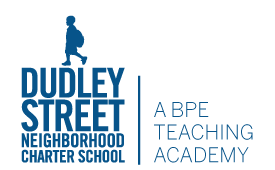General Education Interventions and the Special Education Referral Process
View this information in multiple languages:
At DSNCS, we recognize the necessity to develop, provide and measure interventions in order to ensure that a student has a positive school experience. The following chart further defines the process and structures in place to support academic and behavioral success and the process for Special Education referrals and evaluations.
| Phase 1: Recognition
Scholar experiences difficulty in the general education setting A variety of data sources are used to analyze students’ learning needs, including, but not limited to:
|
⇩
| Phase 2: Curriculum Accommodation Plan
Create a plan that includes instructional practices responsive to the individual student’s needs. The plan will assist the general education classroom teacher in analyzing and accommodating diverse learning styles of all students in the general education classroom and in providing appropriate services and support within the general education program. DSNCS uses the following resources and supports below to ensure that the diverse learning needs of all students is continuously met:
|
⇩
| Phase 3: Referral to Student Support Team (SST)
The referring individual attends a scheduled SST meeting, and the team reviews and discusses the student’s strengths, areas of concern, any strategies, accommodations and support services already in place for the student. This proactive process will assist teachers and students by generating additional classroom instructional strategies, classroom accommodations, and/or intervention plans. The team may also act as a resource for additional services or programs (i.e., reading comprehension groups, anger management groups, social skills). After a six (6) to eight (8) week period implementing and documenting these suggestions, the SST reconvenes to evaluate and assess the student’s progress. At this time, it is determined whether the prescribed programming should continue, if additional accommodations should be tried or if the student requires a referral for an evaluation to determine eligibility for special education services. |
⇩
| Phase 4: Special Education Evaluation Referral
If expected progress is not made, the student is officially referred for evaluation for special education services by an adult(s) with intimate knowledge of the student’s ability. With consent of the parents/guardian, the student is evaluated in the area(s) of suspected disability with a variety of assessment tools and strategies. Additionally, a parent or any person in a caregiving or professional position concerned that a student may have a disability or concerned about a student’s development may also refer a student for an initial evaluation for purposes of determining whether the student needs special education. Upon receipt of a referral of a student for an initial evaluation to determine eligibility for special education, the school district will send notice to the parent and must seek the parent’s consent to conduct an evaluation. If a student qualifies for Special Education, an Individualized Education Program (IEP) will be developed that outlines the most effective strategies and services for meeting their needs. The Individuals with Disabilities Education Act (IDEA) and Massachusetts Laws under Chapter 766 require appropriate services to be administered in the “least restrictive environment.” Thus, students on IEPs are included in the general education program to the fullest extent possible. Therefore, general educators are vital participants in the development, review, implementation and revision of the Individualized Education Program for each student receiving special education. General educators, in collaboration with special educators, are also responsible for making the appropriate accommodations and modifications in the general education classroom. Students with disabilities who are not eligible for special education may have 504 Accommodation Plans which detail specific accommodations that must be provided in the general education classroom. * For questions regarding special education eligibility or the special education evaluation process, contact Seth Ford, Coordinator of Special Education (sford@dudleystreetschool.org). |
A Parent’s Guide to Special Education. Written by the Federation for Children with Special Needs in collaboration with the Massachusetts Department of Education, the Guide is meant to serve as a resource for parents.
Guide to Special Education – English


